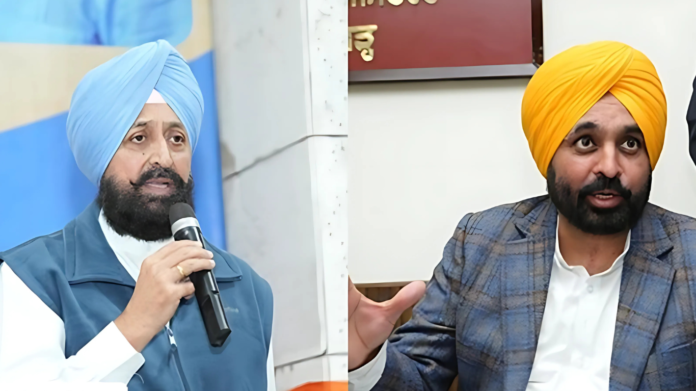With Punjab’s political landscape shifting rapidly, the Aam Aadmi Party (AAP), once a party that thrived on farmer support, is now facing resistance from the very community that helped it rise to power. Leader of Opposition and senior Congress leader Partap Singh Bajwa has openly stated that AAP is on the decline, and that the same farmer leaders who backed AAP in 2022 will now ensure its downfall.
For politically engaged readers, policy analysts, and voters tracking governance and election strategies, this development signals a major shift in Punjab’s electoral battle, one that could redefine the 2027 Assembly elections.
Farmers vs AAP: From Allies to Opponents
Bajwa, in a scathing critique of CM Bhagwant Mann’s handling of farmer issues, accused AAP of betraying its core supporters. The recent breakdown of talks between the Samyukt Kisan Morcha (SKM) and the Punjab government, along with the midnight arrests of farmer leaders, has fueled further unrest.
“This is exactly what the British did before Independence. Farmers came to discuss their problems, and instead of solutions, they were detained. If Bhagwant Mann does not have the patience to talk to farmers, then he has no right to be in office.”
Bajwa reminded farmer unions that they had wholeheartedly backed AAP in 2022, but now they must undo their mistake.
“The knots they tied with their hands, they will now have to open with their teeth.”
For policymakers and political strategists, this growing dissatisfaction among farmers is a critical factor that could reshape Punjab’s electoral map.
AAP MLAs in Touch with Congress? Bajwa Stands by His Claim
Bajwa made headlines recently by claiming that 32 AAP MLAs are in contact with him and considering a switch to Congress. While AAP has dismissed these claims, Bajwa remains firm, challenging AAP leaders to publicly deny it.
“Nobody from AAP has challenged me to name them. When the time comes, I will parade them before you.”
For journalists, policy analysts, and political strategists, this claim raises important questions about internal fractures within AAP. If true, this could signal a potential power shift in Punjab before 2027.
AAP’s ‘War on Drugs’—A Genuine Effort or Election Tactic?
CM Bhagwant Mann has recently intensified efforts to combat Punjab’s drug crisis, setting a three-month deadline for police action. However, Bajwa labeled it as a political stunt aimed at damage control after AAP’s defeat in Delhi.
“For three years, AAP has been in power. Kejriwal had promised Punjab would be drug-free within four months of forming the government. What were they doing all this time? Now that they lost Delhi, they are suddenly trying to appear honest?”
He further alleged that Punjab’s police force is deeply entangled in the drug trade, and that AAP is only targeting small offenders while protecting the real masterminds.
For policy watchers tracking governance and law enforcement, these allegations bring critical questions about the effectiveness of AAP’s policies and the role of law enforcement agencies in Punjab.
Congress’ 2027 Strategy: ‘AAP Will Struggle to Cross Double Digits’
Bajwa is confident that Congress will dominate the next Punjab elections, citing AAP’s weakening position as an opportunity for Congress to regain lost ground.
“In 2017, Congress secured 42% of the vote. In 2022, AAP took 42.5% while Congress dropped to 21-22%. But look at the trend—AAP is falling fast, and Congress will rise again.”
He also dismissed BJP as a serious player in Punjab, stating that without alliances, the party lacks the voter base needed to govern the state.
“BJP will not get Sikh votes, nor Christian, Muslim, or Dalit votes. They can only win here through alliances, not alone.”
For voters, political journalists, and governance experts, this raises important questions about Punjab’s future leadership and the realignment of political forces ahead of 2027.
The Bigger Picture: Shifting Political Dynamics in Punjab
For NRIs tracking Indian politics, business professionals observing economic stability, and policymakers analyzing governance trends, this political realignment in Punjab is crucial.
- If farmer protests continue, will AAP lose its rural voter base entirely?
- Are defections from AAP to Congress a reality, or just a political narrative?
- Can AAP regain trust, or will this signal the party’s decline in Punjab?
Punjab’s political battlefield is heating up. As parties position themselves for 2027, the state’s voters will decide which leadership aligns best with their needs.








